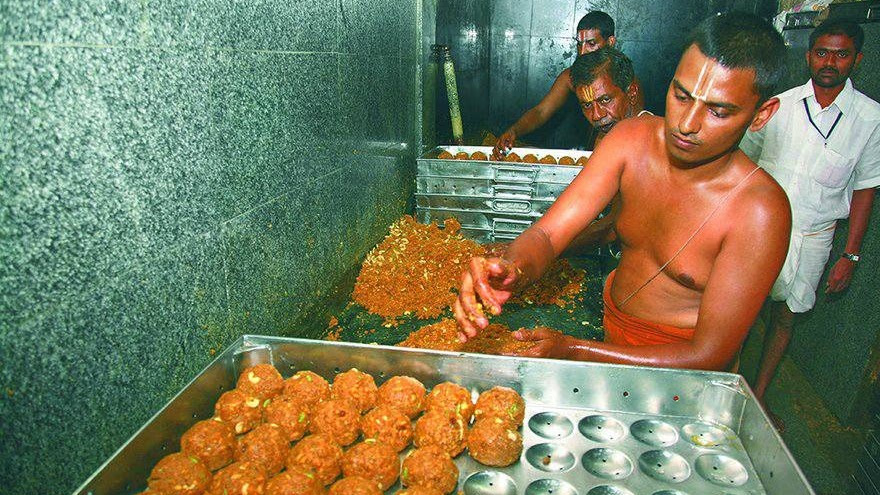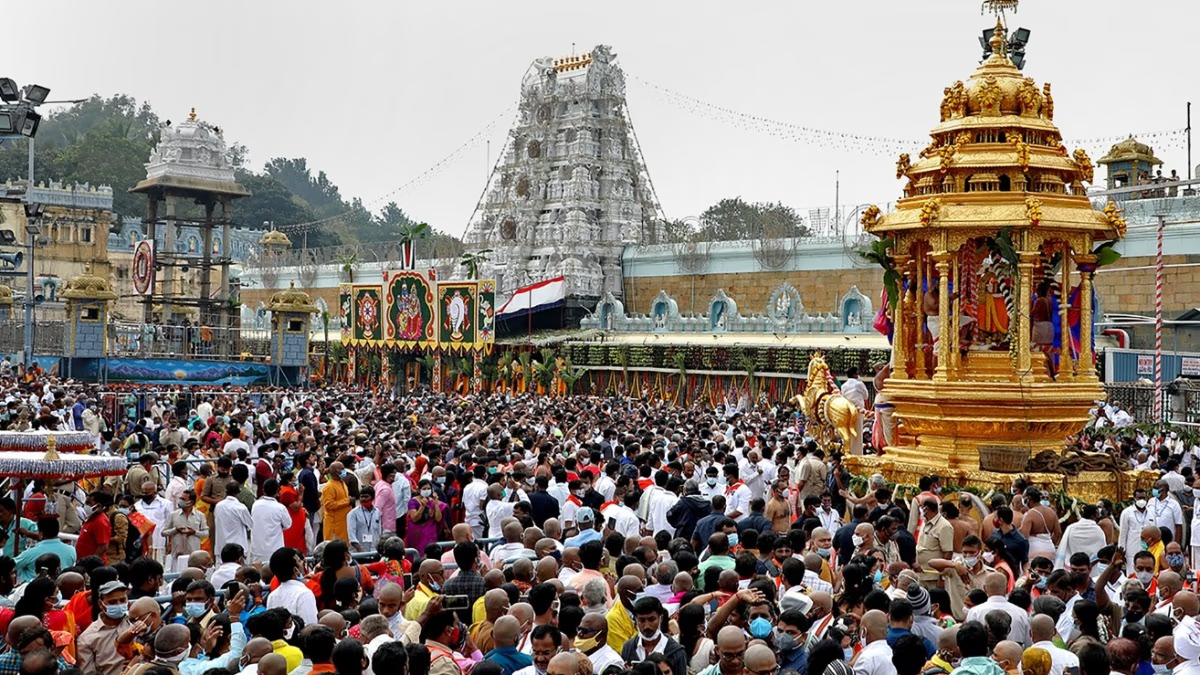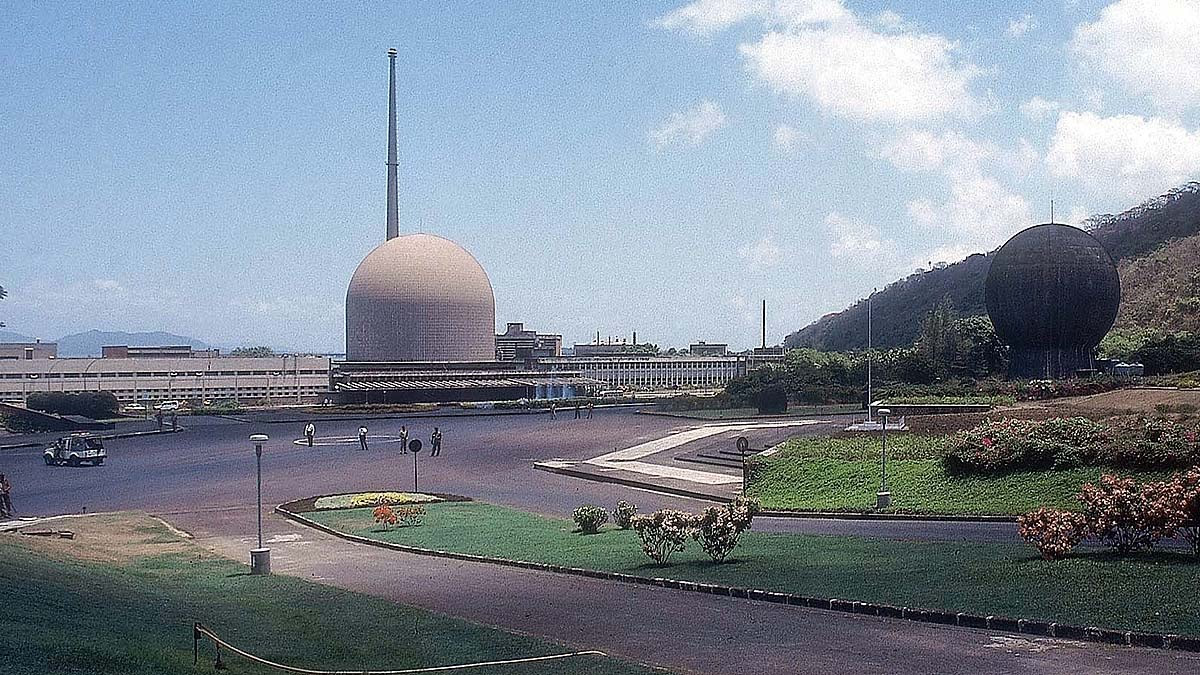Laddoos given as prasad to devotees at Andhra Pradesh's Tirupati Temple have been confirmed to contain animal fat, including fish oil and tallow. The controversy gained momentum when Andhra Pradesh Chief Minister Chandrababu Naidu alleged that during the previous YSR Congress party government, the laddoos offered at Tirupati Temple were made using animal fat instead of ghee. He claimed this desecrated the sanctity of the temple and betrayed the faith of the people.
Chief Minister Chandrababu Naidu based these allegations on test reports released on July 23rd, after the Lok Sabha elections. These test results revealed that the ghee used in the prasad laddoos was adulterated and could contain fish oil, animal tallow, and lard. Tallow is fat derived from animals, and lard refers to animal fat. The report also indicated the possibility of fish oil content in the ghee, which was quite astonishing.

Source: aajtak
Fat Traces Can Still Enter Ghee in Such Situations
It was alleged that during the YSR Congress party's government under Chief Minister Jagan Mohan Reddy, the committee used low-quality and adulterated ghee in the prasad laddoos. The report suggests that if cattle are unhealthy, fed vegetable oils, palm oils, or chemicals, or are malnourished, even then false positive results for animal fat in ghee can occur, potentially leading to animal fat traces in the ghee.
TDP leader A.V. Reddy also claimed that while the market price for cow ghee is at least INR 1000 per kilogram, the committee bought ghee for only INR 325 per kilogram for the temple’s laddoos, implying deliberate use of adulterated, cheaper ghee.
People Are Finding It Hard to Believe
In Hinduism, prasad is considered a direct blessing from the divine. The sacredness of prasad is emphasized in Hindu scriptures, which state that prasad evokes divine emotions and the experience of God’s power. Prasad must be handled with utmost purity, and accepting it with dirty hands is considered disrespectful to the deities. This revelation of significant adulteration has deeply shocked devotees, casting doubt on the integrity of the temple committee responsible for distributing prasad.

Source: aajtak
YSR Congress Denies Allegations
The three states of Andhra Pradesh, Tamil Nadu, and Telangana see numerous devotees returning from Tirupati Temple with prasad laddoos, which are then shared within villages or local communities. People from other states also follow this practice. This controversy has led to widespread anger among Hindu devotees, raising questions about a possible conspiracy behind the adulteration and why the temple committee failed to detect the impurity in the cheaper ghee. However, the YSR Congress party has dismissed these allegations as baseless, and a former temple committee chairman insisted that no adulterated ghee was ever used in the laddoos, alleging political motives behind these claims.
The Temple Earns 500 Crores Annually from Laddoos
Reports suggest that Tirupati Temple annually receives around INR 3000 crores in offerings and donations, with approximately INR 500 to 600 crores generated from prasad laddoo sales. The allegations that these laddoos might contain animal fat are particularly serious since they call into question the integrity of the prasad distributed to devotees. The previous government is being held more accountable as it benefited from INR 50 crores annually from the temple.




